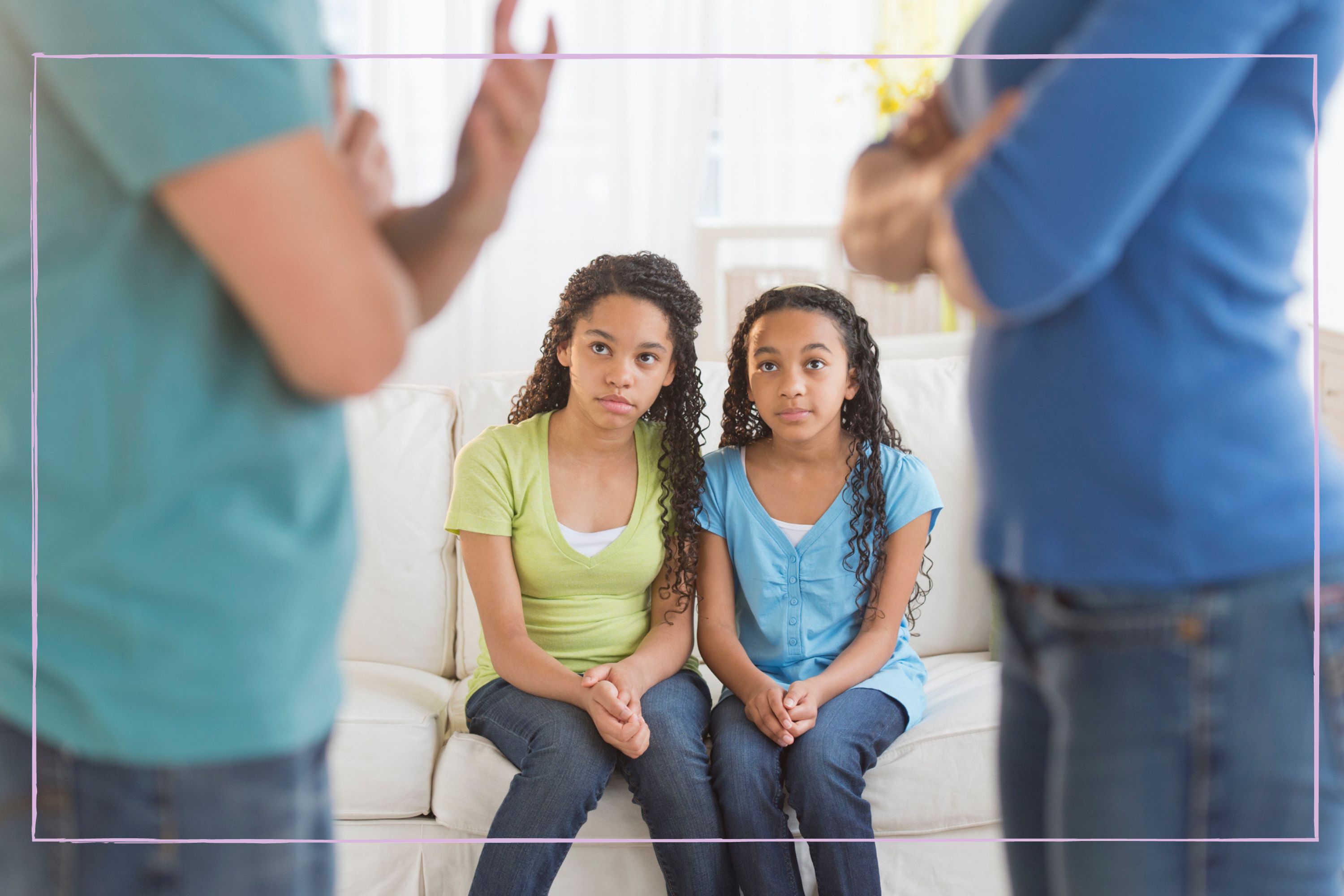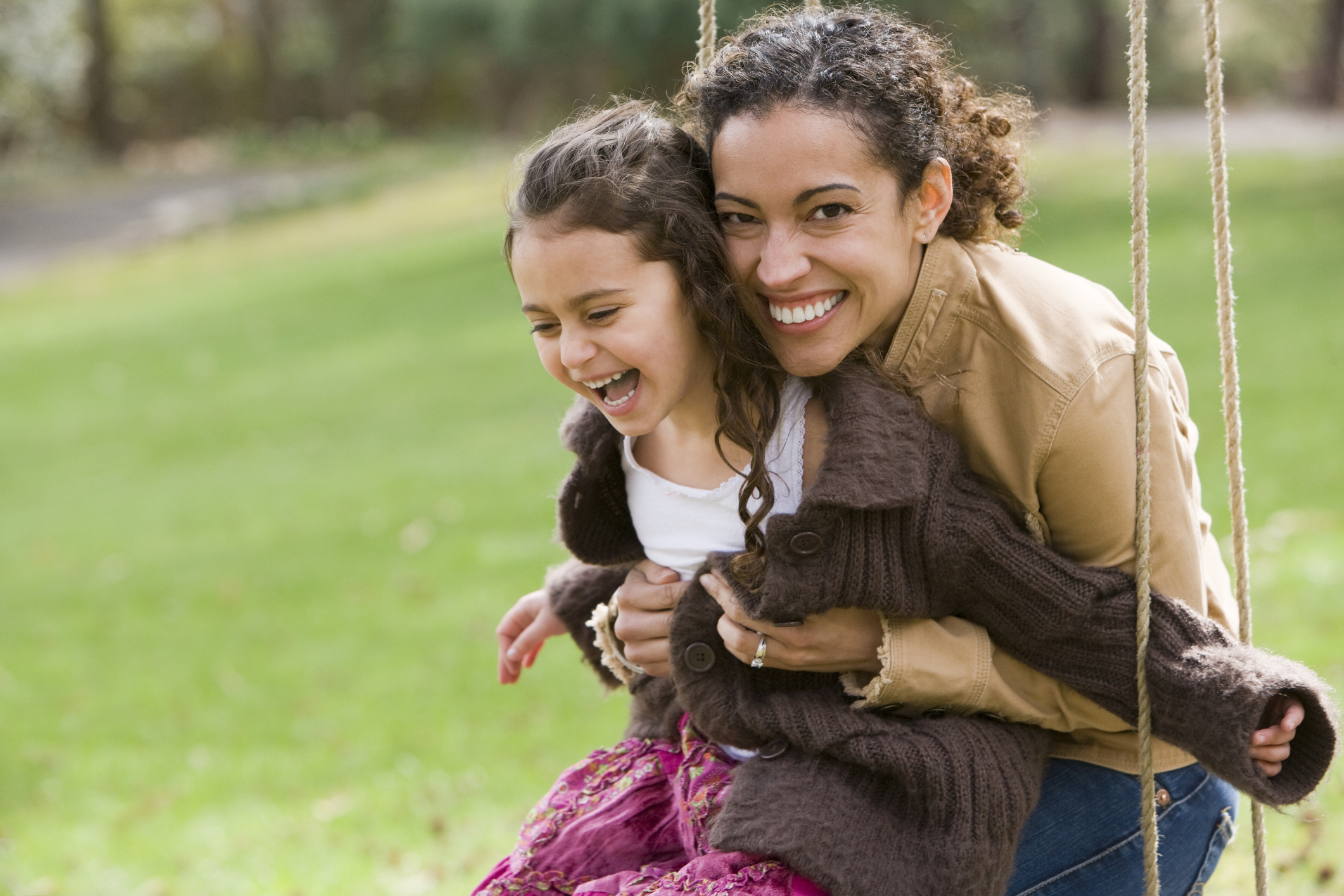The 11 co-parenting boundaries to live by - and what to do when you feel it just isn't working (we asked the experts)
Your relationship may not have worked, but your parenting can still succeed: here are the 11 golden rules of co parenting.


Parenting advice, hot topics, best buys and family finance tips delivered straight to your inbox.
You are now subscribed
Your newsletter sign-up was successful
While your relationship may not have worked out, you can succeed at coparenting. Here is what an expert says about parenting after separation.
If you're working out how to co parent, know that you are not alone. There are relationship breakdowns in the UK every year with more than 120,000 families separating, affecting over 240,000 children. And, as you might know, there are so many reasons relationships break down, from an imbalance of the mental load to not knowing what to do when one wants a baby but the other doesn't. Others heading into a rocky period in their partnership might choose to try and spice up their relationship to try and repair it, leaving only sadness when it doesn't work. Separation isn't easy for parents or children, but working amicably so that children are spending time with both parents through co parenting can make them feel less like they have to take sides.
If a partnership really has run its course and co parenting is the way forward, children’s needs should come first. BACP registered counsellor and parenting expert Jenny Warwick tells us "Your child's needs must be at the forefront of any decision-making. Prioritising their well-being and emotional health ensures that choices are made with their best interests in mind. When your child's needs are central to your decision-making, it’s much easier to make decisions and collaborate. It reinforces the shared responsibility for your child's upbringing and fosters a positive co-parenting environment."
In this article, we offer constructive suggestions to make co parenting a positive experience - all backed by expert advice.
What is co parenting?
The term 'co parenting' was coined to describe a parenting relationship in which the two parents of a child are no longer romantically involved, but still assume joint responsibility for the upbringing of their child.
In co parenting arrangements, both parents choose to put aside their personal differences to develop a parenting plan that is in the best interest of their child's development. Healthy co parenting relationships usually require ongoing communication and mutual responsibility over the care of your child, and can prove difficult following the demise of a relationship.
BACP registered counsellor and parenting expert Jenny Warwick said "Open communication is fundamental to effective co-parenting. This means transparent and honest conversations between co-parents to encourage understanding and trust."
Parenting advice, hot topics, best buys and family finance tips delivered straight to your inbox.
Within successful co parenting, a time arrangement forms a schedule that outlining when mum and dad will be looking after the kids. It sounds formal but it can provide a useful structure when caring for children after a separation.

The time kids spend with either mum and dad will vary according to their ages and needs. However, children of all ages need to continue constructing relationships with both their parents and benefit from spending ample time with each.
Research suggests shared residential arrangements for children under 4 years of age is optimal. Father–child relationships are more likely to become vulnerable after separation, with overnight stays at both homes equally being a protective factor for increased father commitment and reduced drop-out.
The evidence concludes regular and frequent involvement, including overnight stays with both parents should also take place with babies and toddlers when feeding circumstances allow. Along with this arrangement proven to improve children’s development and mental health, it should be a well considered goal to co parenting.
Even if a parent is physically apart from the rest of the family, technology can play a huge part in helping families to stay connected. The use of phones, Skype/FaceTime, text and email can all help kids to reach out to parents, whenever they need to, when they are apart from them.
Co parenting tips
Jenny Warwick stresses the importance of open communication to successful co parenting. She told us "You could use shared calendars and apps to keep everyone on the same page with schedules and important events. Being open in sharing information makes it much easier to make joint decisions and manage challenges collaboratively.
Keeping consistent routines is another top tip. Establishing consistent routines is vital for the well-being of children of all ages, and this becomes even more important to maintain through the potential upheaval of separation.
Jenny said "Sharing household schedules and routines provides your children with stability, predictability, and security. Consistency in daily activities, bedtime routines, and rules helps create a balanced environment and a smoother co-parenting experience."
Another way to make co parenting work is to be flexible, especially when problem-solving. Approaching challenges flexibly and collaboratively will facilitate creative solutions in co parenting. Jenny added "By keeping your mindset open to change and compromise, disagreements can be navigated more effectively, promoting a cooperative and adaptive pattern between you."
Mum-of-two Ellen recalled finding compromise difficult in the early days of her separation. "I was used to making most of the decisions about the kids as I was the one at home with them while my partner worked. I felt like I'd lost some of my control and we seemed to disagree over everything when he first moved out. We now have compromise nailed, and it's become so much easier with time and practice to solve problems quickly," she told us.

Prioritising your child's needs will be an essential part of co parenting. Decision-making with them at the forefront of your minds prioritises their well-being and emotional, ensuring their best interests.
Although the well-being of children is central to co parenting, you should still look after yourself. Prioritising self-care makes room for the emotional and physical support required of you as you co parent effectively.
"You are better able to bring your best self to your parenting, creating a more sustainable and nurturing family environment through self-care," Jenny told us.
She added "Consider including individual counselling in your self-care routine. Seeking support through counselling offers a confidential space to explore personal challenges, develop coping strategies, and enhance your emotional well-being."
This was something Ellen struggled with following her separation. She remembers "I was upset about the breakup and finding my feet in this situation I never expected. I was eating badly and not sleeping enough. When I started using the time the children spent with their dad to care for myself more, my resilience grew and my overall health improved massively."
The 11 co parenting boundaries
- Create an open dialogue with your ex - keeping each other informed of schedules, developments and events that have or might yet affect the children is essential in making the relationship work.
- Make the rules in both households consistent - children need routine and structure. Meal times and bed times, chore and homework rules should all be the same in both homes.
- Speak positively about your ex - children can internalise negative things they hear you say about your former partner. Put your personal feelings about them aside and remember your child still loves them as a parent.
- Be realistic about your own schedule and commitments - newly separated couples can make unobtainable custody suggestions based on fear or anger. Try to eliminate your emotions from the situation and make achievable custody arrangements that prioritise children.
- Realise that a bad partner doesn't equal a bad parent - your ex may have hurt you, but they can still be a good parent.
- Understand that your ex loves your kids - children need the love of both of parents. You will miss them when they're with your former partner, but they will be loved just as much as when they're with you.
- Recognise that co-parenting is challenging – you are doing this for the needs of your children. The divorce was about your relationship, the shared parenting is about your kids.
- It's OK to be boring - you don't have to arrange fun things for your time with the children, they need to experience doing ordinary things with both parents to maintain normality.
- Review the shared parenting arrangement - it can be adjusted as needed from time to time. Just as your kids will grow and change, so should your arrangement. You and your ex might change along with your children. Any changes to the arrangement should be small in their increments, however.
- Don't expose children to conflict - research shows that putting children in the middle of your adult issues promotes feelings of helplessness and insecurity, causing children to question their own strengths and abilities.
- Think before making accusations - don't remain quiet if something about your ex's co-parenting is troubling you, but calmly discuss it instead. Don't point the finger, and use a non-accusatory tone to reach a conclusion together.
When co-parenting doesn’t work…
Mediation can be a big help. The National Family Mediation service can assist parents to develop a co parenting plan if communication is getting difficult. If mediation is being considered by the parents and the children are older, it can be helpful to encourage them to take part in the process.
Family involvement helps parents to really hear what their children are saying and can reduce any feelings of anxiety or stress they may be experiencing.
Jenny Warwick has expert advice on what to do if co parenting isn't working as planned. She explained "Co-parenting is not without its challenges, and it's essential to acknowledge when it isn't working effectively. Signs may include frequent conflicts, communication breakdown, or an inability to make joint decisions. When this happens, seeking professional help, such as family counselling or mediation, is crucial."
She added "Counselling and mediation provides a neutral and structured space for co-parents to address underlying issues, improve communication, and develop effective strategies for collaboration. It's a proactive approach that acknowledges the complexity of family dynamics and offers a supportive environment to work through challenges, ensuring the well-being of both parents and, most importantly, the children involved."
Free co parenting apps to use
AppClose - widely used around the world, AppClose has no subscription fees or monthly charges. It allows you to create a shared parenting schedule, make audio and video calls, share expenses, make payments, and communicate securely.
Peaceful Coparenting Messenger - free to sign up and free to use, the Peaceful Coparenting Messenger facilitates healthy communication between separated parents. Along with the ability to keep one another updated on important arrangements, the app has resources relating to positive communication.
TimeTree - although this app does have a paid plan, the free plan is useful for co parents. It allows you to create and share calendars, posting comments and photos, and import other calendars that both parents might need to see.
Cozi - although not solely directed at co parenting families, Cozi has many features that benefit shared parenting. It allows users to track everyone’s activities in one shared place, with a colour coding option. It can update the whole family with automatic notifications and emails, and users can create and share to-do lists.

Jenny Warwick is a BACP registered counsellor and parenting expert. She is an online counsellor specialising in helping parents and carers manage the distinct challenges of their child's tween and teenage years. Her approach involves providing personalised support to help individuals balance their work, home, and family responsibilities, promote emotional health, and develop stronger connections with their children.
Children's mental health is such an important aspect of co parenting, and you could find yourself having to teach your kids how to manage their anger in the midst of a separation. We've also looked into whether the first working day of the year, also coined Divorce Day, really exists.

Lucy is a mum-of-two, multi-award nominated writer and blogger with six years’ of experience writing about parenting, family life, and TV. Lucy has contributed content to PopSugar and moms.com. In the last three years, she has transformed her passion for streaming countless hours of television into specialising in entertainment writing. There is now nothing she loves more than watching the best shows on television and sharing why you - and your kids - should watch them.